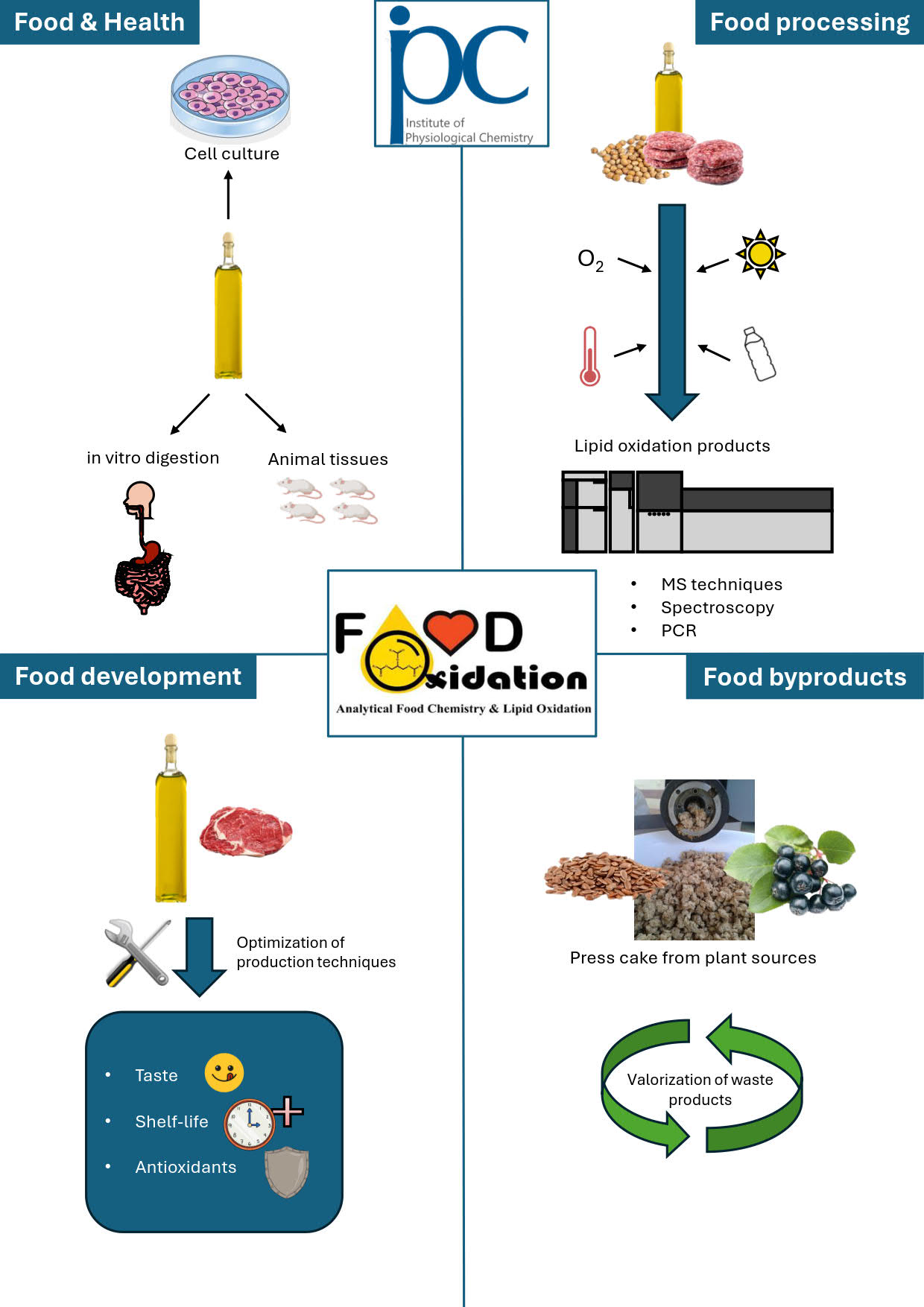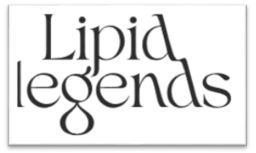Oxidized lipids in our daily diet – Controlling their formation and understanding their health effects
Head: Univ.- Prof. Dr. Marc Pignitter
Team
Oxidized lipids in our daily diet – Controlling their formation and understanding their health effects
Oxidation of dietary lipids causes deteriorative changes in chemical, sensory and nutritional food properties. Vegetable oils, for instance, are rich in polyunsaturated fatty acids and considered healthy, although these dietary fats are prone to oxidation. The limited shelf life of these products is determined by their low oxidative stability, which can be characterized by accumulation of various lipid oxidation products that contribute of characteristic off-flavors and are supposed to have detrimental health effects. Since the addition of antioxidants to vegetable oils and other foods rich in polyunsaturated fatty acids is largely limited by legal regulations, costs and consumer acceptance, novel approaches are needed to improve the oxidative stability of dietary lipids.
We seek to (i) identify novel lipid oxidation products that are more suitable as indicators of lipid oxidation, (ii) modify food processing to improve the oxidative stability of food lipids, and (iii) characterize ADME processes and biological effects of lipid oxidation products in biological systems to reduce their putatively harmful effects on health.

Financial Support is kindly provided by industrial partners and







interersted in joining our group? We look forward to receiving your application.
